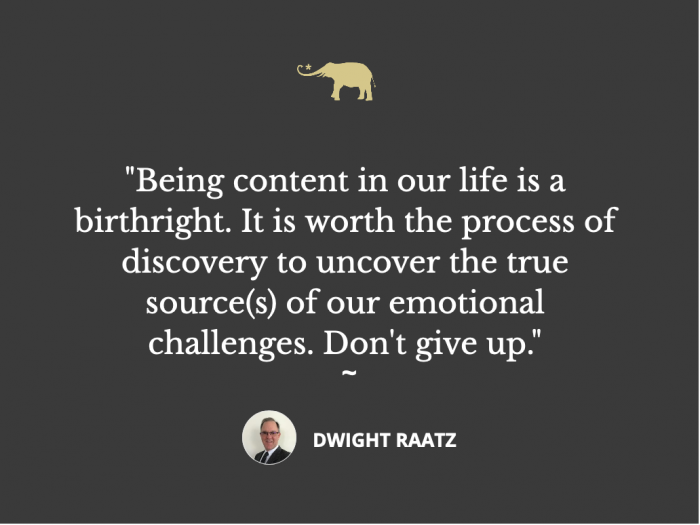Self-Identity and Suffering
I believe that starting from the time we are in the womb until a few days or weeks after birth, children have little to no concept of feeling separate from anything around them.
They have an innate identity that comes from a place of primal emotions and whatever necessary knowledge or wisdom they retained from prior lifetimes. This is the baseline from which we all start our lives; the rest is learned from our experiences moving forward.
How one identifies themselves is a collective mash-up of beliefs acquired starting at a young age and continually evolving throughout their lives. Initially, these beliefs are put upon us by parents or whomever is around from birth to the age of reason (the age at which a child is capable of discerning right from wrong).
One of the basic precepts of life on Earth is that there must be a sense of separation in order to truly experience what it is to be human. Creating a self-identity is important in order to create a separation between the self and everything else. This, in turn, helps us become an individual with our own life, goals, and purposes. These attributes help us navigate relationships, become part of a community, and feel like there is a sense of belonging somewhere in the world.
In Sean Webb’s book, Mind Hacking Happiness: Volume 1, he talks about the concept of a “Self Map” that we all have. This Self Map is constructed throughout our lives from both positive and negative experiences. If we imagine a target or an image of concentric rings, at the center of this target is what we would consider our “Self”—who we are as a person and the most important things we need to survive. This would include the basics: food, water, shelter, clothing. If any of these things become threatened, we would likely do whatever we could to protect those things—to survive.
And, moving outward from that center point, each ring signifies the beliefs we have—each with different levels of importance. The closer the ring is to the center, the more important the belief is to us.
So, for example, the next ring closest to the center could be beliefs such as: “I am a good person.” “I am open-minded.” “I love my family.”
A ring mid-way out on the target might be: “I am a good softball coach” or “I am a good driver.”
And on the other rings, it could be: “I like pepperoni pizza.”
As we live our lives and we have interactions with others (who have their own Self Maps), they will undoubtedly express their thoughts and opinions about the world directly from the framework of their Self Map. When we experience the beliefs of others, the mind will take that information, compare it to our own, and then create the necessary emotional response to it. This process is automatic; it comes from the part of the brain (the limbic system) responsible for keeping us alive. In the initial course of human brain development, the limbic system was online and necessary to keep us safe from threats of the environment. (Like lions, tigers, and bears—oh, my!)
As time has moved on and we, humans, evolved, the threat levels from the environment changed and became less due to how we evolved intellectually. However, the limbic system has stayed intact; it is still doing its job to protect us.
Each time an experience we have is matched up with an “item” or “entry” on our Self Map, the mind will decide the level of threat that experience has to our survival. The emotional response to those threats, generally speaking, directly affects our level of happiness and contentment. The more “items” on our Self Map, the more likely we are not going to be content with who we really are.
Here’s an example:
You are a die-hard Minnesota Vikings fan, and you happen to be at a bar watching a football game against the Green Bay Packers. You might hear someone talking down about the Vikings. As you listen to the person, the mind matches that with your “identity” as a person who is a Vikings fan. If your belief as a fan is closer to the center of your Self Map, the higher your emotional response will be to the “threat.” In effect, the degradation of the Vikings is also a degradation of who you believe yourself to be.
When we consider the concept of self-identity and compare it to the world’s suffering, I would contend that much of the distress is caused by the feeling that our identities are being threatened.
The upside to this issue is that we can change our minds and choose a different response to what we experience. Choosing a different response is the path to mind mastery. Mind mastery is a path to contentment and happiness.
As described in Sean Webb’s book, mind mastery is growing awareness through the practices of mindfulness. As we experience various emotional “events” (like a demeaning comment about the Vikings), we can consider why we are feeling the way we do about that comment.
Are you mad? Are you uncomfortable? Are you irritated?
Then we can consider what belief we have on our Self Map that may feel threatened by this comment.
Once we’ve identified that (“I am a die-hard Viking fan because my dad was and my grandfather before that, so I am too”), then we get to decide how important that belief really is to us. Once we have decided this, we can choose how we want to respond. We can also choose if we want to move that belief of “being a Vikings fan” out further on our Self Map—or even off the map completely. The further out or off the map, the less emotional effect any comment related to the Vikings will have.
This is mind mastery.
I have discovered through my healing practices that I have a primarily negative core belief. This belief was created over years of various experiences. I had little guidance trying to figure out how to navigate my life or emotions. I had this feeling that the choices I’ve made—the ideas I had and how I think—mean nothing to or disappoint others. Having this belief sitting at the core of my mind became a primary point on my Self Map. This core belief is what fuels the protection of my limbic system.
Each experience I have is matched up to verifying whether the experience validates or invalidates my negative core belief. When it does validate it, the emotional state I fall into is depression. Likewise, suppose someone has an expectation of me to meet some sort of goal, know a bit of information, or be able to process a large amount of new information. In that case, this also validates my core belief because I don’t believe in myself or what I’m capable of. This then causes me a huge amount of anxiety.
Much of the suffering I’ve had in my life through anxiety and depression can be traced directly back to how I see myself as a person—the value I place on myself. For many years now, the universe has been showing me that I needed to look into mind mastery as a way to improve my life, but I discounted this. I didn’t believe that mind mastery would have any effect on my quality of life. I didn’t believe that there was anything that could truly change what I perceived as the “truth” of my own worth as a human being. I had to have more emotional and physical proof, and I had to experience even more pain and suffering to really push me over the edge.
Even though I’ve known that I am a Highly Sensitive Person (HSP) for a few years, I never really considered how sensitive I really am to the world around me. The proof that finally convinced me was when my sensitivities to the world became more acute and clear as I became older. Once I realized that some of the emotions I was feeling were not my own, I began to understand that it was possible to know if what I was feeling was mine or not. Knowing I could determine this, I finally realized that I could choose how I wanted to feel about anything. About this time, the universe was again showing me information about mind hacking, and I knew this was just another reminder that I needed to really dig into this.
As I got deeper, I started understanding that many of my emotions were a symptom or effect of some other external stimulus. I started to notice that I can be emotionally affected by the words people speak, the food I eat, the person I’m with (in person or even remote), or the building I’m in, among countless other external factors.
Then, I decided I could take my power back and choose how I wanted to respond to those factors. The responsibility was my own to make these changes. And this has made all the difference to my overall emotional state.
I have found that implementing some simple mindfulness practices in my life is crucial to mind mastery. Practices such as meditation, auto-writing or journaling, nature walks, and breathwork are all good practices that can be implemented easily into daily life. Mastery of any kind is not realized from a one-and-done sort of methodology. It’s an ongoing practice that can take years to perfect. This may sound daunting, but from my experience in using these practices for a few short months, it has already paid off with big benefits.
When struggling with emotional upheaval, we may want to consider how our mind really works. If someone is sensitive, some of what they are feeling may be from an external source.
Being content in our life is a birthright. It is worth the process of discovery to uncover the true source(s) of our emotional challenges. Don’t give up.
You are so amazing, and the world needs you to shine your true self in order for it to be complete.












Read 7 comments and reply